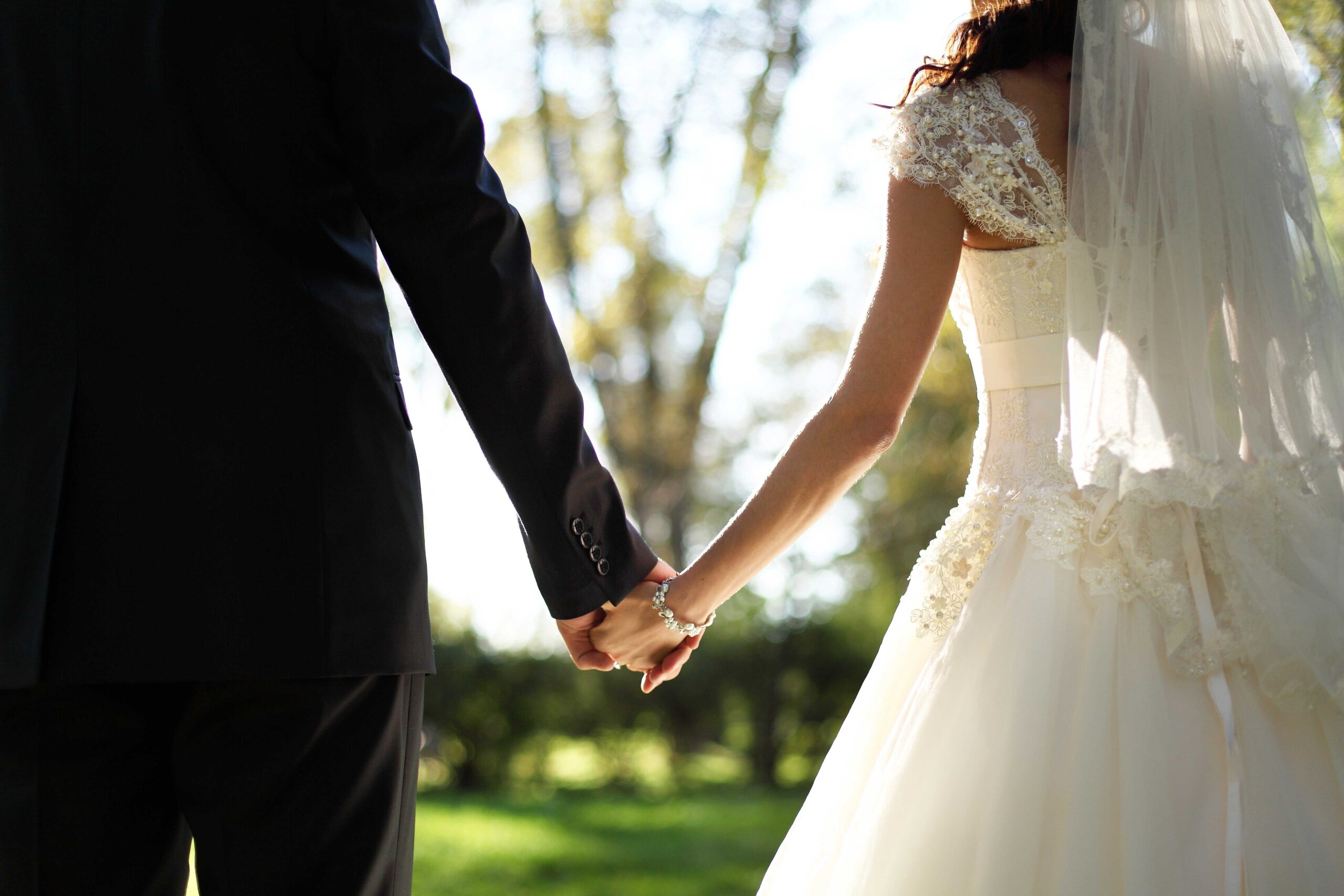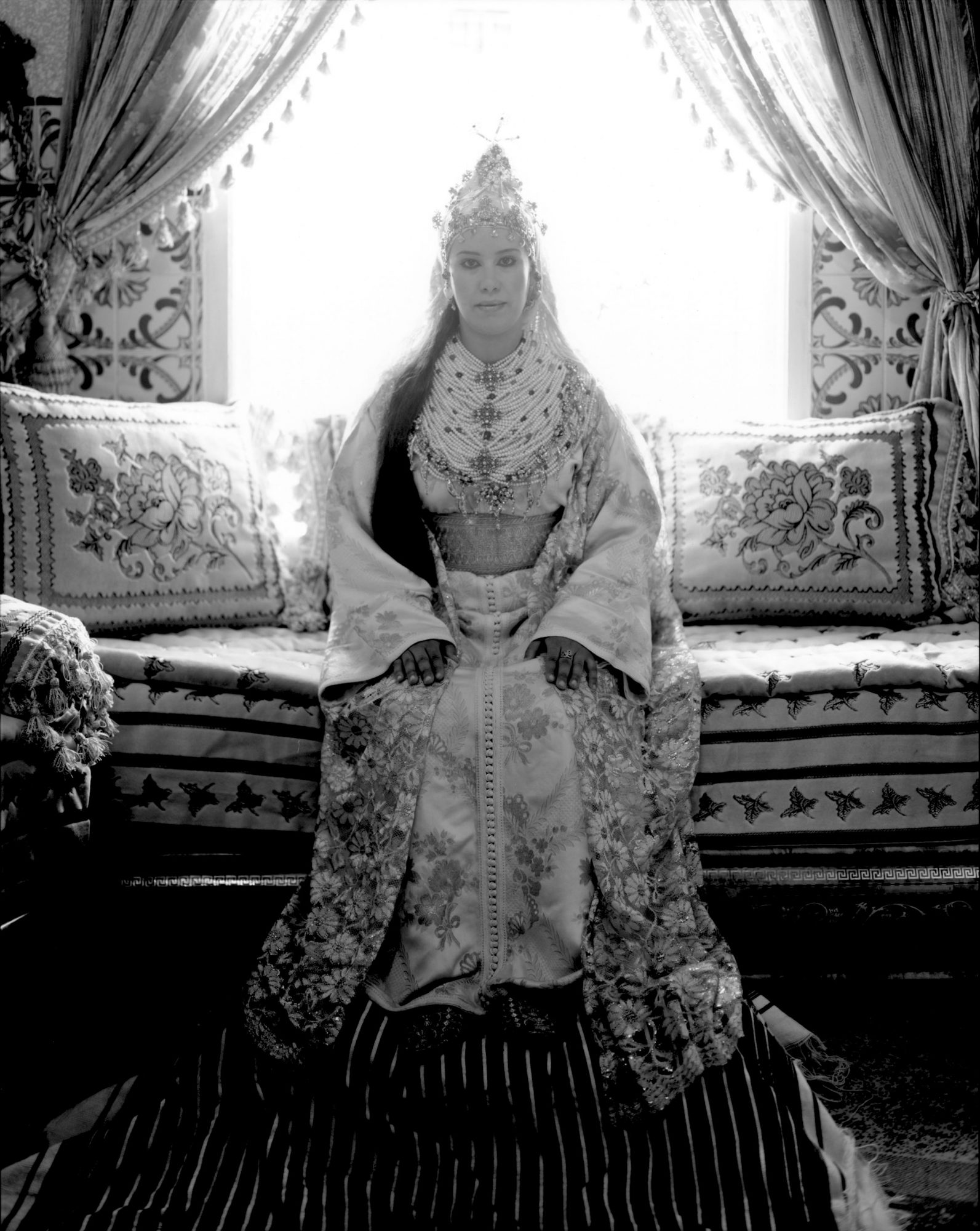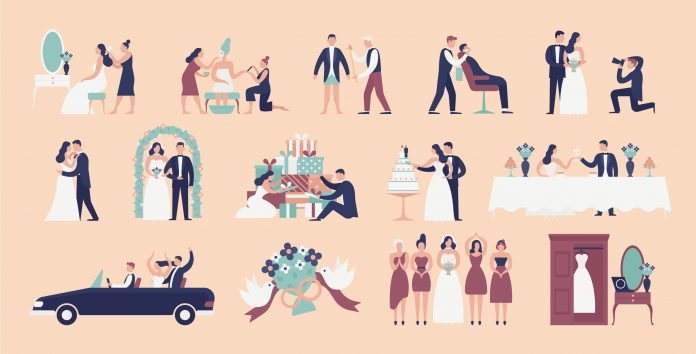mar·riage [mar-ij]
noun
the social institution under which a man and woman
establish their decision to live as husband and wife by
legal commitments, religious ceremonies, etc.
Dictionary.reference.com
A methodical man in all aspects of his life, the 29-year-old Charles Darwin sat down one day in 1838 and drew up a list of pros and cons of marriage. He noted fatness and idleness, less money for books, lack of conversation with clever men in clubs and a concern that his future wife might not like London life as potential downsides. The advantages of such an arrangement? Companionship, children and “the charms of music and female chit-chat”. He envisioned himself relaxing beside a “nice soft wife” on a sofa beside a good fire with plenty of books and music, and found it quite the most attractive of the available options. Darwin married his first cousin, Emma Wedgwood, in January 1839, and the pair lived happily together for 43 years.
In the developed world, 90 percent of people marry before the age of 50. In the developing world, this figure is even higher. But given that evolutionary theory suggests men in particular should be programmed to spread their genes as widely as possible, what is it that makes so many of us, including the father of evolutionary theory himself, decide to tie the knot and commit ourselves to a single partner? Psychologists and anthropologists have narrowed the reasons we marry into three main categories: social and familial pressures, economic and personal security, and emotional self-interest.

The first category is the easiest to understand: we marry because society expects us to do so. Married couples conform to a normal stereotype that the wider community is comfortable with, and for hundreds if not thousands of years, a marriage has been the preferred institution in which to bear and raise children. People imitate the behaviour of those around them and are happy to do so because acting the same way gives them a sense of belonging. The pressure to conform can be direct, for example, by entering into a marriage arranged by family members or community elders, or indirect, whereby we marry because it is expected of us, we feel it is the right thing to do and everybody else seems to be doing it. No one wants to be the odd one out.
Category two is also quite clear: we get married because we feel that marriage gives us economic and personal security. If one spouse is the breadwinner, he or she will financially support the non-working partner and their offspring, and if both parents work, they will be able to share in the material advantages of a double income. If a spouse becomes sick, their partner will care for them and for the children. Together, a husband and wife can better protect themselves, their children and their property than they would be able to individually. Marriage therefore makes sense in both economic and security terms – and the rational part of our psyche recognises this.
It is the final category, emotional self-interest, which is most difficult to comprehend. Discourses about marriage typically talk of love and selflessness, of offering oneself up entirely to another person. Surely, this is the antithesis of self-interest? Not according to the American Psychological Association and Psych Central.

Harvard researchers have shown that marriage in itself does not make us happy. Our positive emotions peak when we are having sex or engaging in conversation – essentially investing time and effort in our relationship and seeing that investment being reciprocated by our partner. If someone has been in an unhappy marriage and leaves, they may well see a spike in their happiness once the marriage is dissolved because they no longer feel their input is being wasted. This is not dependent on being married or not being married: it is about the quality of the relationship we are sharing.
The confidence and reassurance we feel from the public proclamation of the commitment that marriage represents also helps set marriage on a psychological plain above other forms of cohabiting relationships. People enter into relationships of any sort in the belief that their new partner will help them develop into the person they aspire to be. In a marriage, however, participants feel this responsibility more acutely and put a higher value on their partner’s support, in part because they feel other people are watching and expect them to succeed as a team. Partners share a vested interest in being seen to move forward and achieve their goals both as individuals and as a couple.
The reasons for entering into a marriage – social, financial and emotional – all seem strong. We marry because doing so is beneficial in so many aspects of our lives. Why then do so many marriages fail? The problem, it would seem, comes not from the institution but the misconception that marriage is in itself both a necessity for happiness and stability but also a fail-safe way of achieving them. It isn’t. Happy marriages make people happy. Stable marriages offer stability. A marriage on its own is just a marriage: it takes two people to make it work.
Read the rest of this article in No.89 Issue 4/2012 of Asian Geographic magazine by subscribing here or check out all of our publications here.











